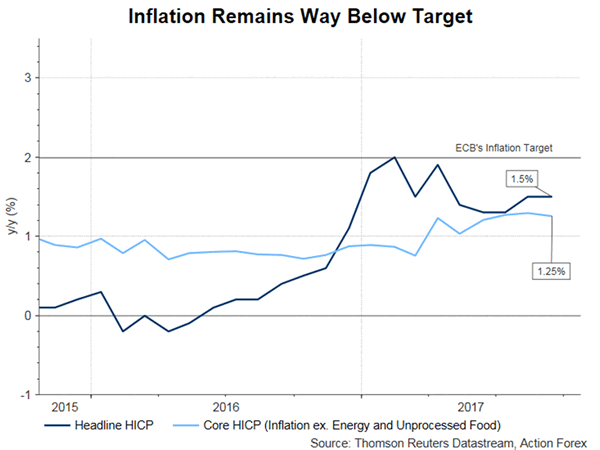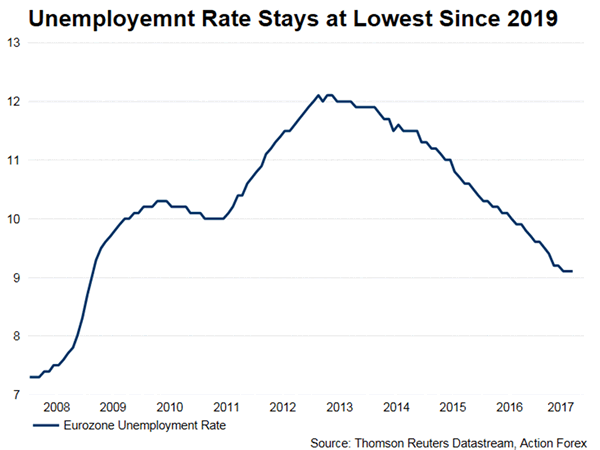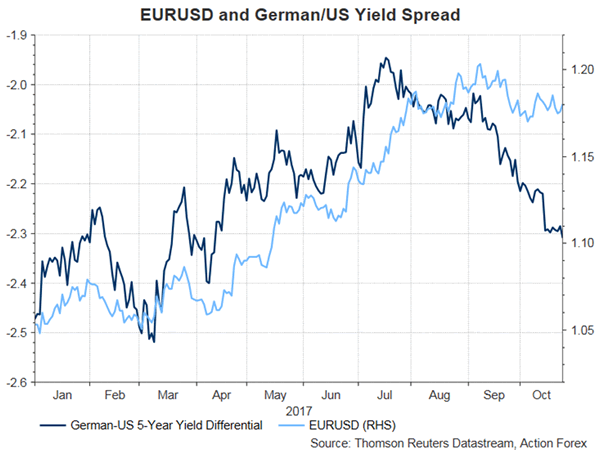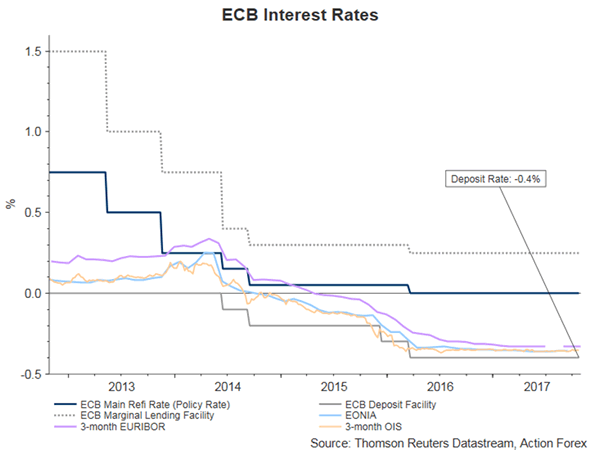ECB announced the plan to reduce asset purchase next year. In line with the majority of market participants had anticipated, the central bank would trim the size of buying by half, to 30B euro per month, in the first nine months of 2018, "or beyond, if necessary". It added that stimulus measures would be implemented "in any case until the Governing Council sees a sustained adjustment in the path of inflation consistent with its inflation aim". The single currency dropped after the announcement, on profit-taking. The policy rates stayed unchanged, with the main refinancing rate, the marginal lending rate and the deposit rate at 0%, 0.25% and -0.40% respectively.
Satisfactory Economic Recovery
At the press conference, President Mario Draghi appeared confident over the Eurozone’s economic recovery, suggesting growth has continued "unabated". He supported his judgment citing the upswing in business investment, improvement in construction investment has also improved, as well as robust exports. While attributing these developments to the accommodative monetary policy and QE, Draghi again called for "more growth-friendly" fiscal policies in "all Eurozone countries"..
Dovish Tapering
Despite tapering, ECB intentionally maintain a dovish tone. Draghi used "recalibration" of the asset purchase program, instead of the word "tapering". He admitted that the decision was not an unanimous one. Yet, the members were generally positive towards reducing the size of purchase, thanks to the increase in employment across the Eurozone and rising wages. The composition in the assets to be bought would be largely unchanged. Meanwhile, ECB would reinvest the principal payments from maturing securities "for an extended period of time after the end of its net asset purchases, and in any case for as long as necessary". The central bank remained flexible and noted that "if the outlook becomes less favourable, or if financial conditions become inconsistent with further progress towards a sustained adjustment in the path of inflation, the Governing Council stands ready to increase the APP in terms of size and/or duration". At the press conference, Draghi maintained a flexible tone and reiterated that the stimulus measures after September 2018 is "open-ended.
ECB is not Fed
When asked about why ECB continues to buy assets while the Fed has begun balance sheet reduction, Draghi suggested that the US recovery is "way more advanced" than in the Eurozone, and the region’s inflation outlook is "way behind". He dismissed comparison between ECB and the Fed, refusing to promise that ECB would follow the suit of the Fed in raising interest rates 15 months after ending the bond-purchase program.




